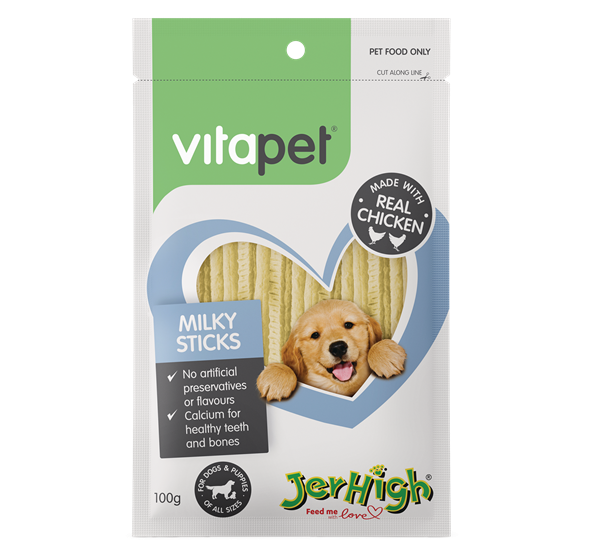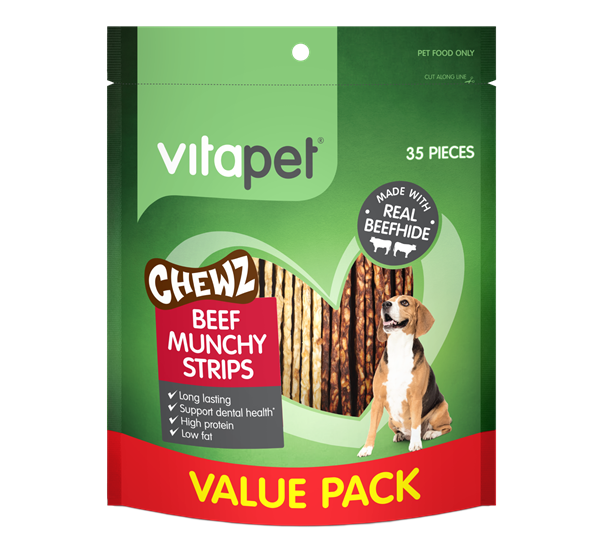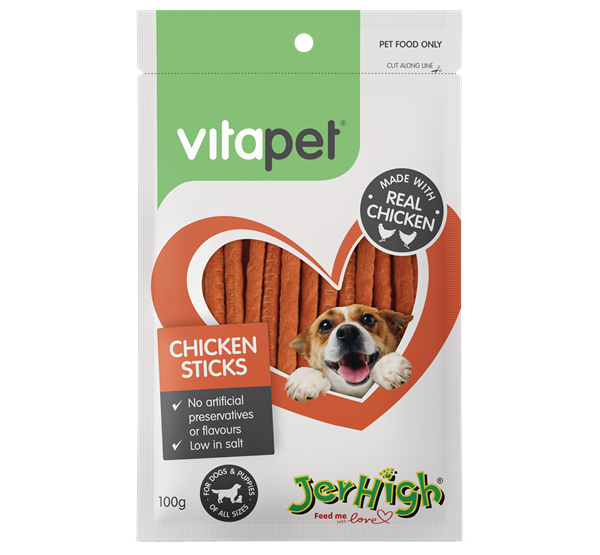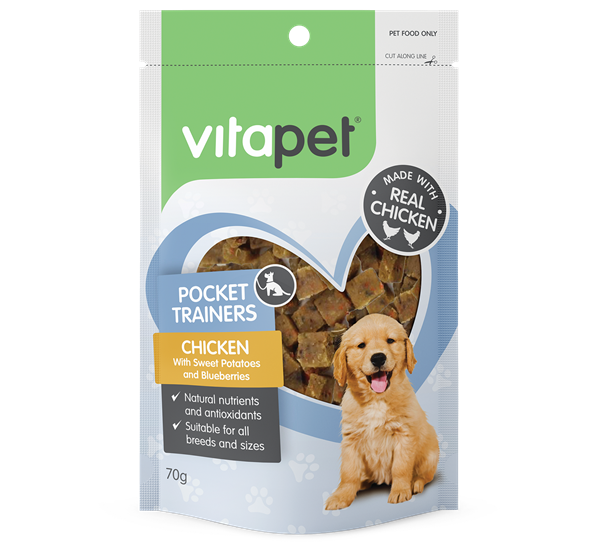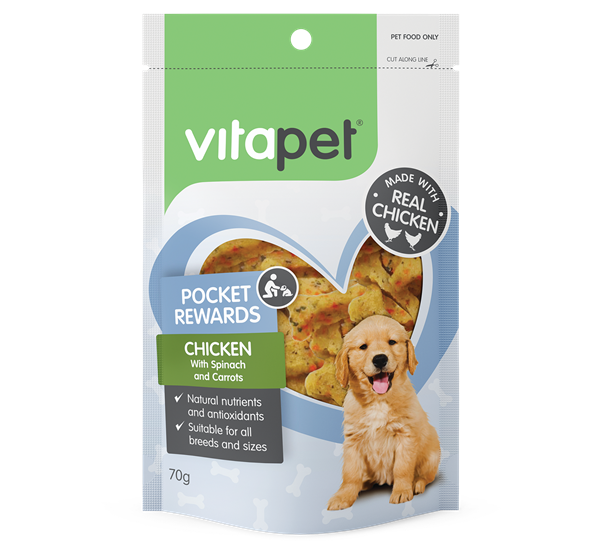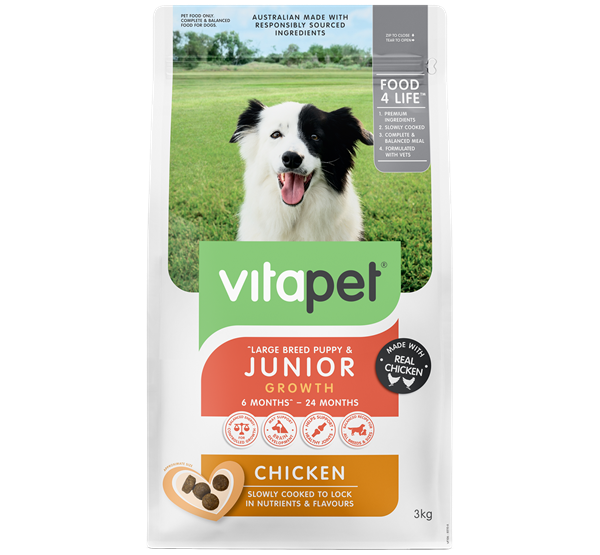A puppy’s immune system is not fully functional until well after birth, which means they are more vulnerable to infection. When your puppy is fed a well-balanced diet containing all the essential nutrients, vitamins and minerals your puppy needs, they will simply be well-nourished, and do better in life. Here are some tips on how to strengthen your puppy’s immune system.
Essential nutrients: arm your puppy with the right ingredients to fight disease
The purpose of a puppy diet isn’t just to satisfy energy requirements for growth. It’s so much more than that. In fact, the body relies on specific dietary nutrients which are essential for developing the body systems that fight disease. It’s a well-known fact that diets deficient in protein, energy, minerals, vitamins, and essential fatty acids impair overall health and wellbeing and can leave your pup vulnerable.
Here are just some of the important dietary nutrients that can help your puppy’s developing immunity:
- Essential fatty acids: Essential fatty acids (Omega 3 and Omega 6) naturally support joint, skin and coat health.
- Essential minerals: Examples of essential minerals involved in immunity and wound healing include copper, zinc and selenium.
- Vitamin A: Vitamin A is known for enhancing the immune system
- Vitamin D: Apart from being vital for healthy bones, Vitamin D plays a vital role in the immune system and hormone regulation.
- Vitamin E: Vitamin E modulates T-cell immunity and is also an important anti-oxidant.
- What about Vitamin C? Vitamin C plays an important role in supporting the human immune system, but interestingly, this is not an essential vitamin in dogs.
When it comes to supplements, it’s important to be accurate, as certain vitamins, such as Vitamin D and Vitamin A, can actually be dangerous if your puppy has too much. Rest assured that the right amounts are present in a high quality commercial pet food.
Anti-oxidants: the secret weapon to your puppy’s health and well-being
We hear a lot about the benefits of anti-oxidants but what exactly are they?
Anti-oxidants are thought to improve the immune system by their effects on free radicals. Sounds like some sort of reactionary group or cult, right? Not exactly, but their effects can be damaging.
Free radicals have the power to injure healthy cells in our body but anti-oxidants found in certain foods, can scavenge and neutralise free radicals, preventing cell damage.
There are many sources of natural antioxidants that can be obtained through the diet. Natural sources are preferred to the purified versions due to improved absorption in the gut.
Dietary supplementation of commercial puppy food with natural sources of antioxidants can improve the immune system’s response to infectious disease as well as keeping your puppy healthy on the inside.
Here are some examples of beneficial anti-oxidants:
- Β-carotene: can be found in pumpkin seeds, chick peas, spinach and parsley
- Anthocyanins: can be found in blueberries
- Lutein: can be found in green, leafy vegetables like spinach
- Lycopene: can be found in tomatoes
- So be sure to check the list of ingredients to see if any natural sources of anti-oxidants have been included in your chosen puppy diet.
Gut microbiota
The large intestine (also called the colon) is home to billions of microbes, which are better known as the gastrointestinal microbiome. This important population of microbes interacts with the body’s digestive, nervous and immune systems, playing a vital role in health.
A diet that is too high in carbohydrates and too low in fibre can lead to an imbalance of gut bacteria, which can affect your puppy’s health.
It is vital to choose a well-balanced high-quality puppy food that has been formulated by a reputable company who work with a team that truly knows nutrition, to fully support your puppy’s immune system development.
References:
1. Pilla R, Suchodolski JS. The role of the canine gut microbiome and metabolome in health and gastrointestinal disease. 2020. Front. Vet. Sci. 6:498.
2. Tizard IR, Jones SW. The microbiota regulates immunity and immunologic diseases in dogs and cats. 2018. Vet. Clin. North. Am. Small Anim. Pract. 48(2):307-322.
3. Gershwin ME, German BJ, Keen CL. Nutrition and Immunology: Principles and Practice. Totowa, NJ: Humana Press, 2000.
4. Aranow C. Vitamin D and the immune system. 2011. J. Investig. Med. 59(6):881-6.
5. Huang Z, Liu Y, Qi G, Brand D, Zheng SG. Role of vitamin A in the immune system. 2018. J. Clin. Med. 7(9):258.
















